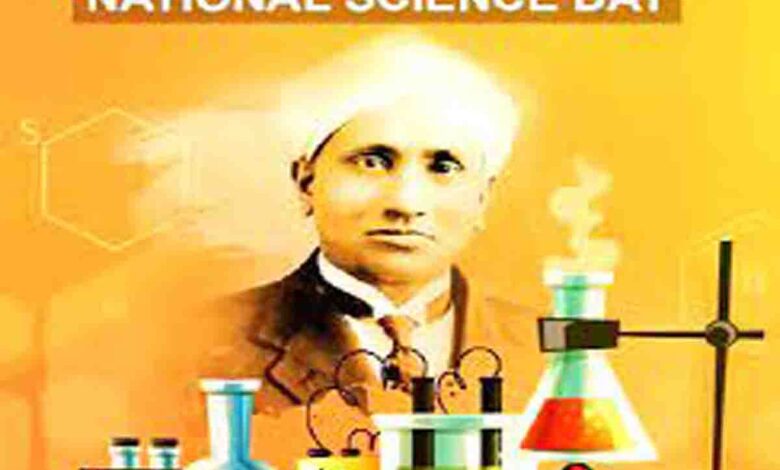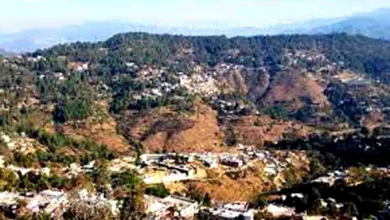Need for scientific community to find solutions to man-made problems

Friday, 03 March 2023 | Dr BKS Sanjay & Dr Gaurav Sanjay
GUEST COLUMN

On the National Science Day observed recently, we remember the discovery of the “Raman Effect” by Indian scientist and Nobel laureate C V Raman. Chandrasekhara Venkata Raman was recognised for his research on transmission of light which revealed that whenever light passes through a transparent medium, part of the redirected light alters the spectrum and intensity which is known as Raman light scattering effect, in short “Raman effect”. This was a significant discovery that opened the stage to a plethora of future scientific breakthroughs.
The purpose of commemorating the National Science Day is to recognise the value and importance of science in people’s daily life and to raise awareness of eradicating taboos and rituals which are prevalent in many countries through science. Accepting the fact that the environment is mostly about science, hence, scientific research is done mostly about the environment.
Basically everything in our environment is based on science. Science pushes us to our limits. Humans are the greatest resource on the planet earth. It is science which has increased our horizon of thinking and stimulated our human brains to think further. Everyday humans are excelling in their scientific endeavours and have gone from Earth to the Moon and now planning expeditions to Mars and they are going to explore other galaxies possibly in the future.
This year’s theme of National Science Day 2023 was “Global Science for Global wellbeing”. Our national leadership has realised the importance of science and its effects. India as a nation is emerging as a global leader and it is willing to play a more important role for shaping the global scenario. Currently, India is chairing the G20 summit under the leadership of Prime Minister Narendra Modi and this is the right time to harness the potential of the Indian scientist community involved with both government and non-government organisations by collaborating with the global scientists to address the global challenges like climate changes, pollution, future security of food and fuel for the whole global population which is currently at 8.04 billion and is estimated to increase to 9.7 billion by the end of 2050.
If we want to solve the future global problems, including those in our country, the nation should invest to develop the interest of the current young generation in reading and writing science. There should be an increase in the application of the scientific principle for the better survival not only of homosapiens but also of the other 8.7 million species of plants and animals of the universe. The goal of science, scientists and their scientific studies should be the wellbeing of the whole mankind. To achieve that goal, there is need that our current research should go from lab to land, from classes to home and from local to global.
We are in a new era to provide opportunities to common people. For that scientific fraternity in the country and abroad should come together, work together for the wellbeing of mankind; keeping in the mind the G20 summit motto – One Earth, One Family, One Future and Indian dictum of “Vasudhaiva kutumbakam” that means the whole world is one family.
India is bringing together scientists and administrators through international cooperation to discuss research and innovation for an equitable society. One of such meetings was held last week in Kolkata and many more such meetings will be held in the near future in various cities of India. Innovation has always been a cornerstone of progress in all aspects of life – health, education and nutrition which are the fundamental needs of every individual of each and every nation. These scientific innovations will benefit our people and our nations.
It is a challenge for mankind to deal with the major global issues like contamination of food and water, pollution of the air, climate change, poverty, over population, emergence of newer fatal micro-organism, war and territorial conflict resulting into displacement of millions of people every year. It is not the duty and responsibility of a few individuals but it is the duty of all of us to contribute to checking climate change. If we all follow the simple principle of reduce, reuse and recycle then everyone can contribute to reducing global warming and can check the climate change.
However, some of the rich influential people are ignoring the above fact. According to media report, a family member of one of the richest persons of our country takes pride in not following the above sustainable principles while refusing to wear the newly purchased clothes even for the second time. In addition to that, they advertise and show their richness by spreading this message in mass media. Many current global problems have also been created by the scientific innovations. Now there is need that our scientific communities should find out the solution for these man-made problems. We make an appeal the researchers to do something not only to increase the longevity but to give longevity with purpose and action, so that the person not only lives longer but remains healthier and active. The person who lives longer should not only be active and do all his activities of daily living but should also contribute in activities which should be beneficial to the society at large with his learned experiences.
(The authors are orthopaedic surgeons based in Dehradun. Views expressed are personal)






